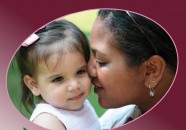View ACF COVID-19 Responses and Resources
Main navigation
- About
- Projects by Topic
- Abuse, Neglect, Adoption & Foster Care
- ACF Performance Plans & Reports
- Administrative Data for Research and Improvement
- Archived Data
- Child Care
- Early Head Start
- Head Start
- Home Visiting
- Interoperability and Data Sharing
- Methods and Tools
- Self-Sufficiency, Welfare & Employment
- Strengthening Families, Healthy Marriage & Responsible Fatherhood
- Youth Services
- Project Index
- Events
- Resource Library
- Grants
- Blog
- Multimedia







